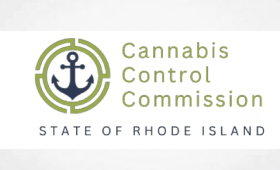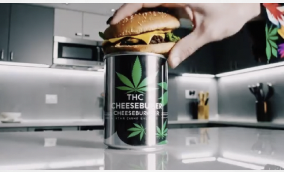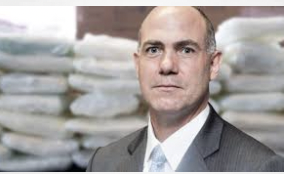The coronavirus pandemic affected both small and large companies alike. Practices like firing employees, quick business transformations, or using contingent staffing became the standard of operations for many businesses. The CBD industry has also been affected by these changes. After all, for the industry that has constantly been struggling with legal requirements, this sudden shift could quickly end in a catastrophe.
Today, after some time, we can finally assess what damages and positive changes COVID-19 has brought to the CBD market. How did the smaller CBD companies fare in this challenging time? What were the new strategies CBD marketers had to implement to keep their businesses afloat? Are you simply interested in learning more about these topics or want to know what CBD is right for you? Then feel free to read on.
What are the Main Insights from the New Study?
The Center for Regulatory Solutions (CRS) recently released a new study, titled “The Cannabinoid Market in the Wake of the 2019 Pandemic”. The study was conducted by Michael Haykin, a professor at the University of Arizona. His research focused on the ways in which the pandemic affected the CBD industry. According to his observations, the current state of the CBD market is much different than it was before COVID-19.
The study included interviews with several professionals working in the CBD industry. A total of 16 people were consulted:
7 owners and employees of small CBD companies;
5 owners and employees of medium-sized CBD companies;
4 owners and employees of large CBD companies.
Among the questions asked by the researchers were questions related to the economic impact of COVID-19, how the CBD industry has been affected by it, and how it created new opportunities for businesses.
Smaller CBD Companies Fared Better in this Challenging Time
Most of the 16 people interviewed by the researchers agreed that COVID-19 had an adverse effect on smaller CBD companies. However, they also agreed that these companies had better chances to survive than larger ones. The reasons behind such conclusions have been explained below.
“Large CBD companies focused on selling products containing high amounts of CBD in order to be able to make claims about their health benefits. This strategy proved to be harmful after COVID-19 was released because such companies removed all CBD containing products from their stores.” – Michael Haykin
The effects of COVID-19 had a very negative impact on the demand for products with high levels of CBD. Smaller companies that had a lower percentage of CBD in their products remained unaffected by this change. They were able to retain their customers and increase their sales thanks to their unaltered product lineups. Since it is now legal to sell only non-cannabinoid ingredients, smaller companies do not have to worry about losing their customers or being penalized by law enforcement agencies.
The same was true for medium-sized companies, which had a large enough section of products with low concentrations of cannabinoids like hemp oil, hemp protein powder, or hemp capsules. Before COVID-19, these companies had to drop all their high-CBD products from their lineup because they did not have enough non-cannabinoid ingredients to sell them legally. Now that it is legal to sell just non-cannabinoid ingredients, these medium-sized companies were able to keep selling all their products regardless of their cannabinoid content. This allowed them to continue increasing sales and doing business as usual.
In other words, smaller companies have more freedom in terms of product lineups and marketing tactics than medium-sized ones do.
“Their flexibility in product lineups and marketing tactics can be more effective than those of bigger companies.” – Michael Haykin
On the contrary, larger companies that were focusing on selling products containing high amounts of CBD were hit hardest by COVID-19. Since these companies had to eliminate all CBD-containing products from their lineups, they faced huge drops in sales. As a result, many of them had to fire some of their employees and change their business strategies entirely. This meant they had to change their focus from selling high-CBD products to selling non-cannabinoid ingredients like hemp oil or hemp protein powder. Moreover, some of them even had to change their name or go out of business completely. Since most of these larger companies did not have enough non-cannabinoid ingredients to sell, they lost a lot of sales after COVID-19 was introduced into legislation.
The study found that these big CBD companies did not recover after this drastic change. Most of them still struggle with recovering their sales, so they can get back on track financially. In fact, some of them even had to lay off even more employees in order to cut costs and remain operational.
CBD Industry Has Had to Make Big Changes Thanks to COVID-19
The changes brought about by COVID-19 affected every part of the business: from staffing and inventory management strategies to legal compliance policies and customer relations strategies. According to Michael Haykin’s study, most of the actions taken by CBD businesses were aimed at finding new ways of doing business legally while keeping their customers satisfied. Let us take a look at some of the most important findings from this study:
Inventory Management
Inventory management was one of the most affected practices in the CBD industry. The new laws required businesses to separate their inventory into two categories, products with high levels of cannabinoids (including the non-cannabinoid ingredients that got added later on) and products without any cannabinoid content. It also became illegal to mix these two types of products or even share storage space with them. This change led to a lot of confusion among CBD stores and manufacturers. For instance, some companies had to create entirely new storage facilities for their non-cannabinoid ingredients, while others had to purchase new equipment or hire new employees to manage the newly created inventory.
As a result, there has been a significant increase in costs for CBD companies. According to Michael Haykin’s study, the cost of storing non-cannabinoid ingredients alone has increased from around $10,000 to $50,000 per month. Moreover, the costs of keeping track of the inventory were also significantly increased due to COVID-19. In this case, companies had to hire more employees to do the task.
Legal Compliance
The legal compliance policies have also been greatly affected by COVID-19. As we have mentioned above, the new legislation requires CBD companies to make sure that all of their products do not contain THC levels higher than 0.3 percent. It also requires them to make sure that all their products do not contain any other cannabinoid compounds apart from THC and CBD. This means that products containing terpenes or non-cannabinoid ingredients are now considered illegal if they are sold or advertised as “CBD”.
While CBD companies managed to comply with this requirement pretty well at first – since most of them were already producing legal products before COVID-19 was introduced – they had to make some changes related to their legal obligations after COVID-19 was released.
Summary
CBD has become a topic that everyone seems to be talking about in the last few years. It seems that both regular people and celebrities have jumped on the bandwagon. This sudden interest in CBD products has definitely created a demand for the product, which means that there have been more and more small businesses opening to meet the demand. In the times of the pandemic, it seems that many small businesses and even larger companies have been struggling to stay afloat, even household names seem to be struggling with one thing or another. CBD is a product that I believe can actually help us get through the pandemic, it’s no doubt a stressful time for everybody on the planet, and CBD’s properties actually help ease stress, anxiety, and depression. Hopefully, that is enough to keep these small and medium-sized businesses afloat during this rough and trying time.





















